
Women are key to the resilience of conflict-affected communities
Women in conflict-affected communities, especially from rural areas, often face multiple layers of disadvantages, including gender-based violence, limited access to education and healthcare, and economic insecurity. These women from various walks of life – mothers of many children, single parents, women who married young and could not complete their education – take the heaviest burden of inequality, demanding care work, and poverty.
But like elsewhere, conflict-affected women in Georgia have also demonstrated a great resilience, adaptability, and resourcefulness in the face of hardships. In close cooperation with local civil society partners, the EU4Dialogue programme has helped to train 42 women in handicrafts over the past year, as well as opened doors for 14 women farmers in Georgia’s conflict-affected Shida Kartli region with various forms of support. In addition, 99 women were trained in entrepreneurship and proposal writing, the majority of whom successfully bid for the grants to receive equipment to advance their businesses.
Sophia Kiknadze, Tea Badzagua, Ilona Mebonia, Teona Mania, Mzisadar Shonia, Tamar Mchedlidze, Lali Omadze, Nana Tskrialashvili and Ekaterine Kobaladze are among the dozens of women with whom EU4Dialogue proudly worked, together with civil society partners. Their stories reveal their resilience and perseverance – these women have shown remarkable determination in rebuilding their lives, families, and communities.
Sophia Kiknadze, 47
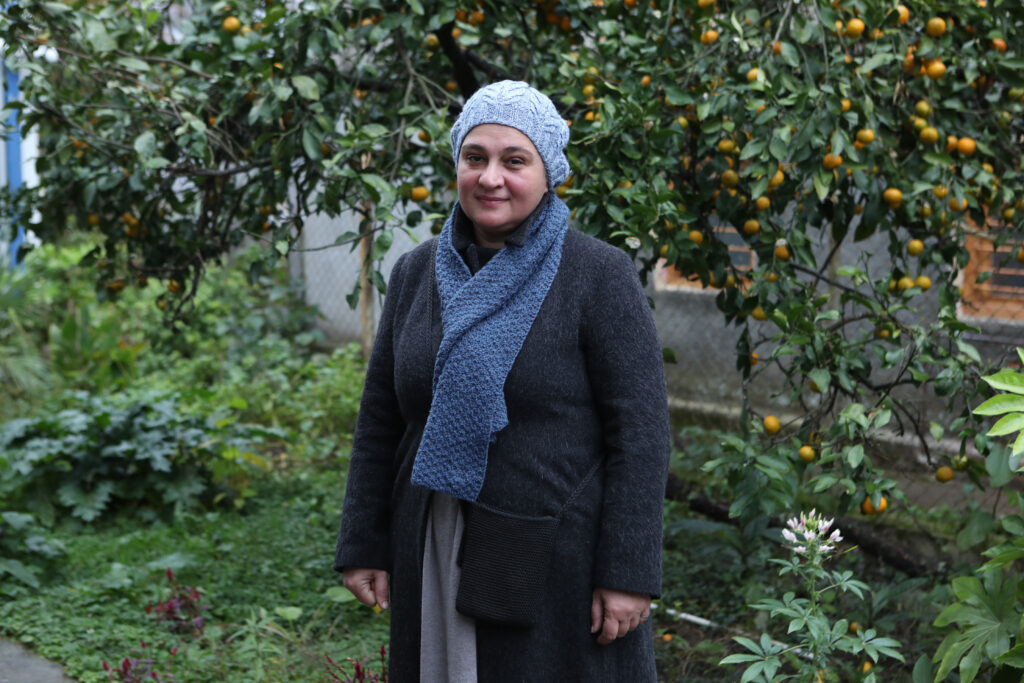
Sophia Kiknadze has been among 42 conflict-affected women attending handicraft classes, organised by EU4Dialogue partner NGO Hands for Peace in Zugdidi. Sophia is a single mother of three children, who have the status of internally displaced persons from South Ossetia / Tskhinvali region. As a single mother with children to care for, Sophia says she needed a handicraft specialisation that would allow her to work from home. Her talent, passion and dedication for knitting did not go unnoticed – the teacher of the knitting class offered her a job while she was still in class. Sophia has many other passions. Along with knitting clothes, she enjoys knitting toys too, as well as painting. She also enjoys taking care of the garden of her mum’s house – where she currently lives with her children – full of lemons, grapes and flowers. Sophia also admits that while never having had the chance to practice law that she studied in college, forensics is still one of her great curiosities.
Tea Badzagua, 41
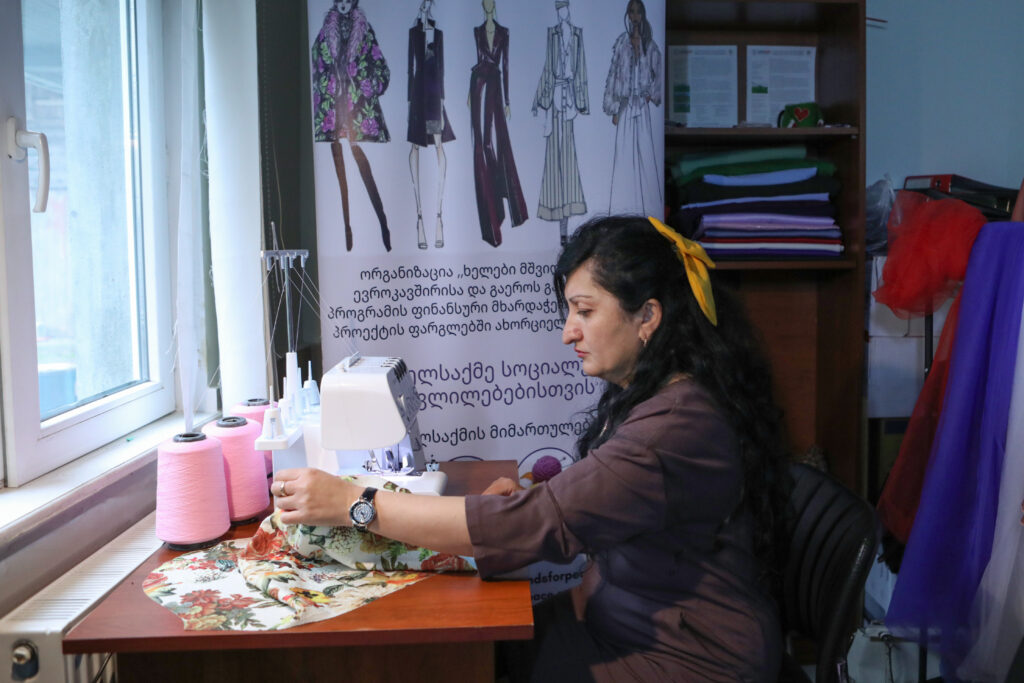
Tea Badzagua is originally from the Gali district. Much of her life in recent years has revolved around her children, including her son, who is on the autistic spectrum. In recent years, she has moved to Zugdidi to give her son better access to essential therapy sessions.
“I have dedicated my life to this so far. Until now, I have been part of this therapy process for my son, which has helped me to see a whole new world. Now I have started to take care of myself too,” says Tea, who had to give up her short career as an English teacher after giving birth to her children.
The daughter of a seamstress, she has rediscovered her childhood passion for tailoring and like Sophio, enrolled in handicrafts classes. “Participating in this project helped me to see and discover myself better. And I learned a lot.” Now she is dreaming and working on opening a linen sewing workshop. “It could also serve as a place where children with special needs can learn and develop through sewing,” Tea adds.
Teona Mania, 37
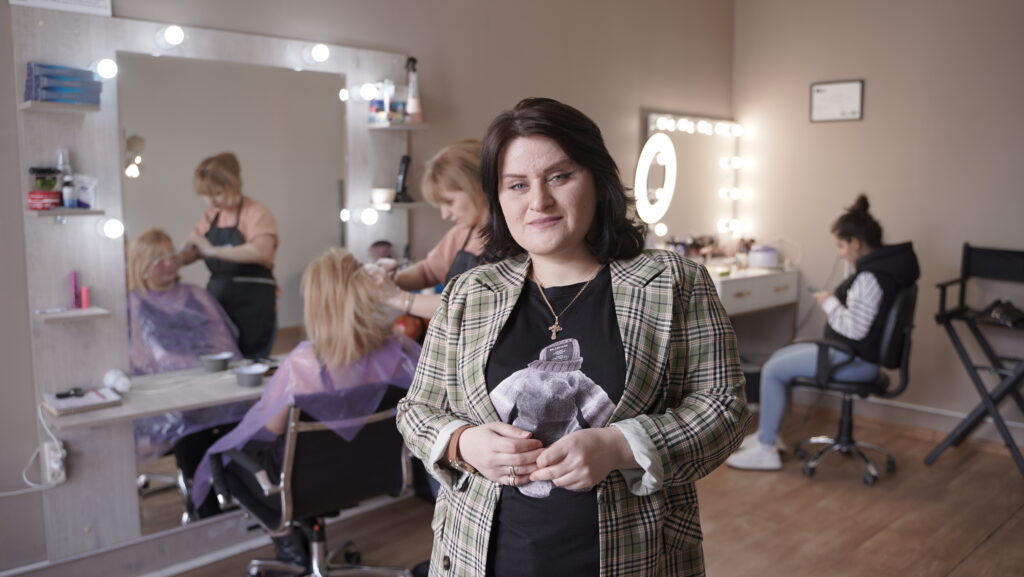
Teona Mania is an IDP from Kochara village in Abkhazia, currently living in the town of Terjola in the Imereti region. A few months ago, she enrolled in entrepreneurship trainings organised by EU4Dialogue partner NGO Abkhazinterkont, and successfully entered a grant competition to receive equipment for her beauty salon, which she runs with two other IDP women.
Teona notes that with the help of the new equipment, they were able to improve the quality of their services, which in turn led to an increase in the number of clients, who used to go to nearby towns instead for the same service. “A customer pays a lot of attention to comfort and service. After we received the new equipment, the number of customers has increased”, she says. Teona and her colleagues are hopeful about the future. They plan to expand their business, including hiring a cosmetologist.
Ilona Mebonia, 42
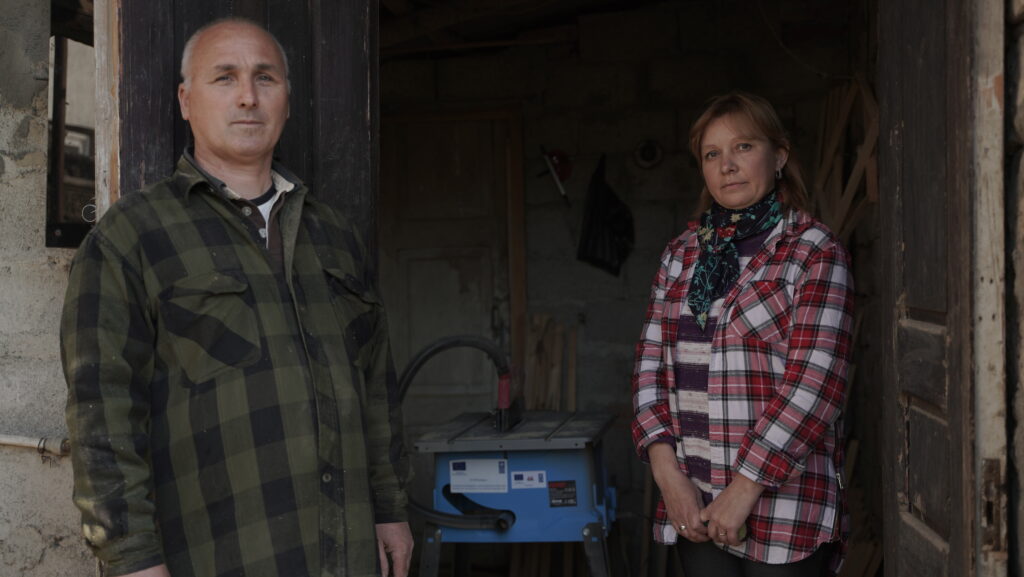
Ilona Mebonia, an IDP from Sukhumi, is a testament to the resilience and adaptability, and the power of vocational training. Her participation in the trainings provided by Abkhazintercont, gave her the skills and confidence to successfully bid for the grant to receive specialised machinery to make bee racks.
Ilona and her husband Zakro Tskhvaradze and their three children live in the town of Vani, Imereti region. Earlier, Ilona was running a small sewing atelier, which saw a decline in customers due to the COVID-19 pandemic, prompting her to engage in beekeeping. But recent fumigations for Asian stink bugs in the area adversely affected their bee colonies. This is how their family came up with the idea to produce bee racks as an alternative source of income, that also addresses a demand for beekeeping equipment in the region.
Mzisadar Shonia, 58
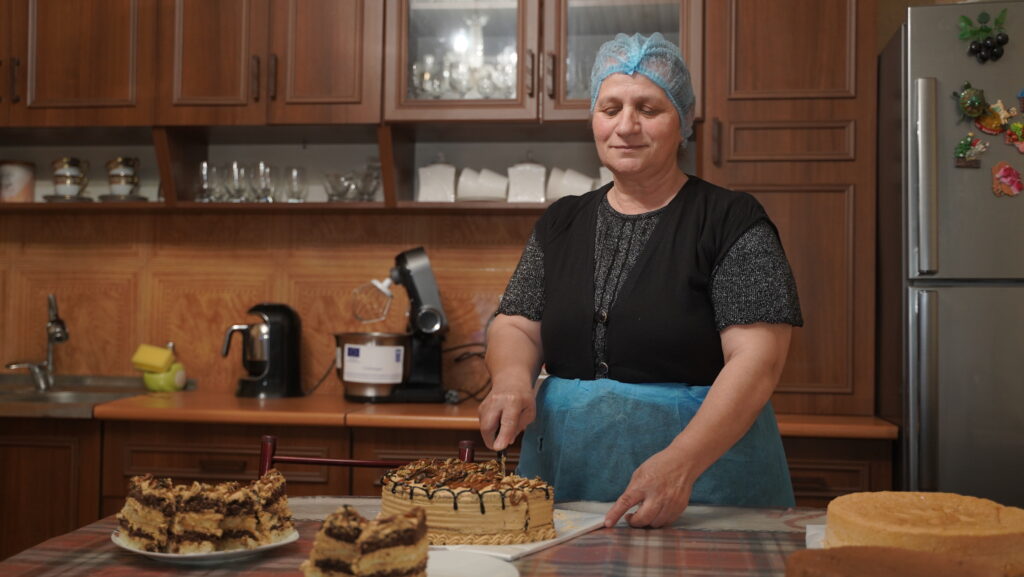
The story of Mzisadar Shonia, IDP from the village Kvitouli in Abkhazia, is a great example of how small assistance can make a big impact for conflict-affected persons. For the past eight years, Mzisadar has been baking cakes in the ABL village of Lia in the Samegrelo region, selling her produce in nearby towns.
Mzisadar was able to successfully compete for a grant from the Charity Humanitarian Centre Abkhazeti, a grantee of EU4Dialogue, which provided her with a new gas stove and other necessary equipment to continue producing cakes. The investment helped her to increase production, while also expanding her customer base and boosting her income.
Tamar Mchedlidze
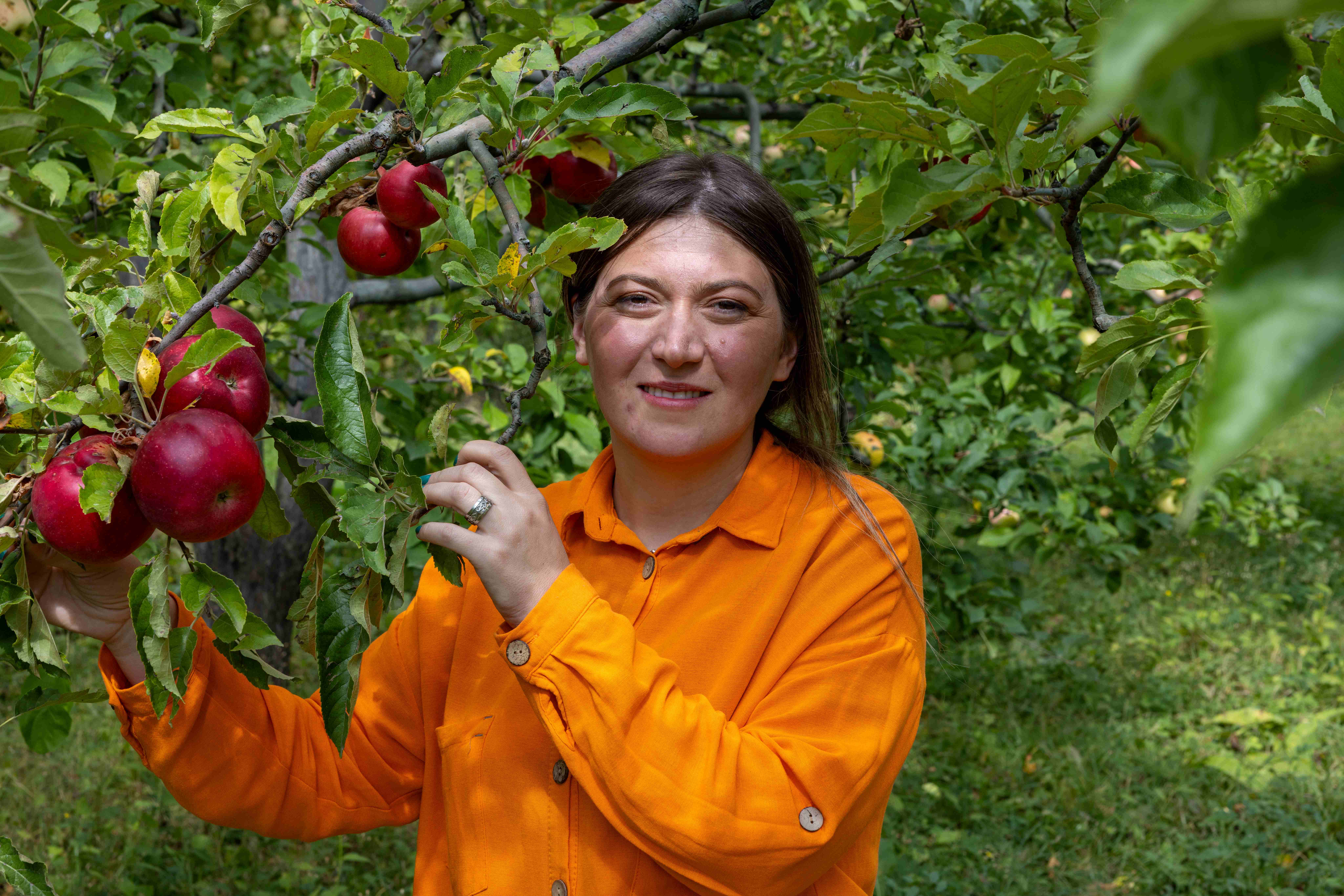
Tamar Mchedlidze lives in the village of Zemo Khviti and teaches at a school in the nearby village of Zemo Nikozi, on the Administrative Boundary Line with Tskhinvali region/South Ossetia. A teacher by profession who spends most of her time in the field of education, Tamar recently discovered her passion for agriculture and enrolled first at an EU4Dialogue supported project, then in a fruit-growing course at a local college.
“We must not abandon our villages! We must stay here and inspire young people to do the same. Strong villages, safe planet,” says Tamar, adding: “After this project I realised where I am and where I need to be. I realised that wherever you are as a person, you should feel strong and make a positive impact”.
Lali Omadze
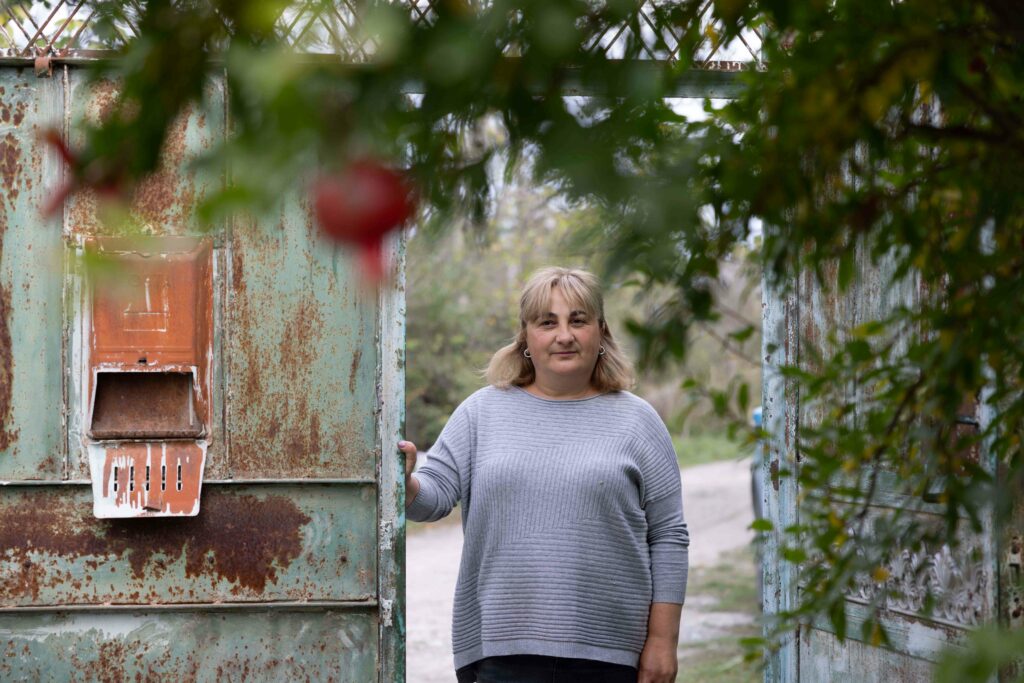
Lali Omadze is a dynamic and energetic resident of the village of Pkhvenisi, close to the ABL with Tskhinvali region/South Ossetia. She works part-time in a bank, but spends most of her time tending to her subsistence farm.
“The project has shown me that I can continue to grow more than just cereals, and it turns out that I can do a lot of other things,” Lali shares. “Now I’m thinking of planting a vineyard and expanding my activities in that direction as well,” she adds.
Nana Tskrialashvili
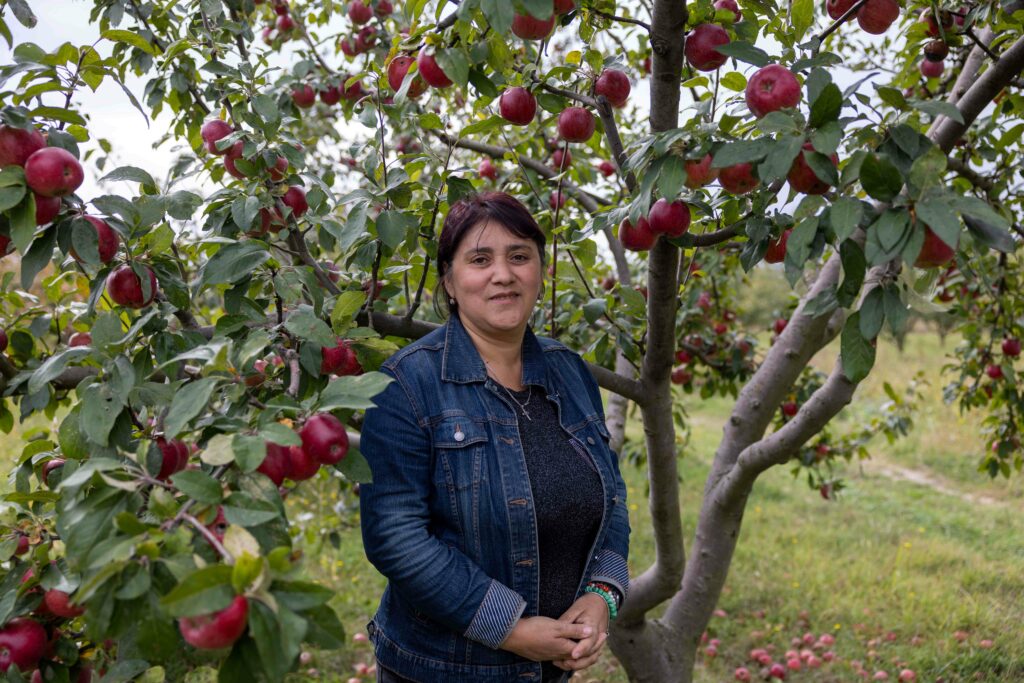
Nana Tskrialashvili is a teacher from the village of Bershueti, a village on the ABL with Tskhinvali region/South Ossetia. In addition to teaching, Nana and her family own large orchards full of different fruits. While meeting established women entrepreneurs through the EU4Dialogue project, Nana was inspired to start harvesting a traditional Georgian wheat variety known as Red Doli.
“This project convinced me that I can be strong,” Nana says. “I’m already a fighter, but now I have even more new ideas.”
Ekaterine Kobaladze
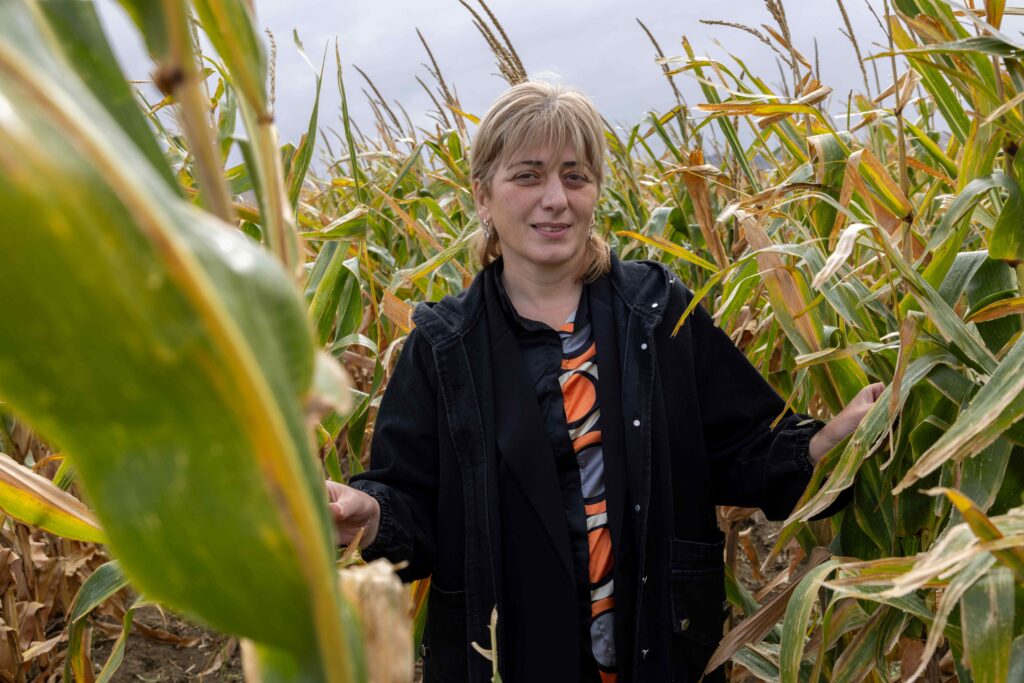
Ekaterine Kobaladze, a mother of two, lives in Khurvaleti, close to the administrative border with South Ossetia/Tskhinvali region. She teaches physics and chemistry at the nearby Shavshvebi public school. The EU4Dialogue project is Eka’s first international project.
“This project taught me how to stand by people and inspire hope in one another,” Ekaterine says, adding: “I didn’t think there was much to do in the impoverished village close to the Administrative Boundary Line. Nonetheless, this project helped me realise that agriculture can be beneficial and generate income, therefore things could be done here as well.”
Disclaimer: This story was produced with the financial support of the European Union and UNDP under the EU4Dialogue project. Its contents do not necessarily reflect the views of the European Union and UNDP.
MOST READ
SEE ALSO

No, time is not on Russia‘s side
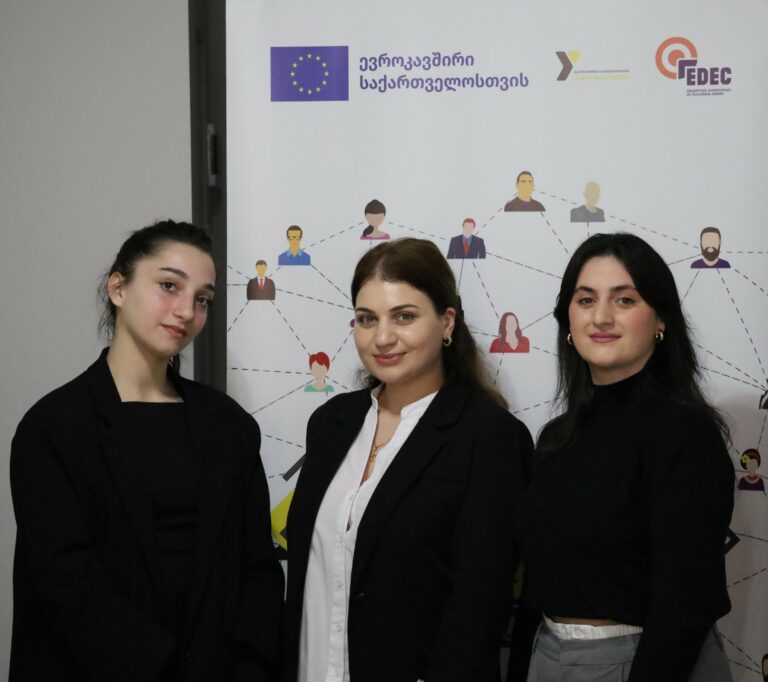
A hands-on approach to boost youth employment in Georgia
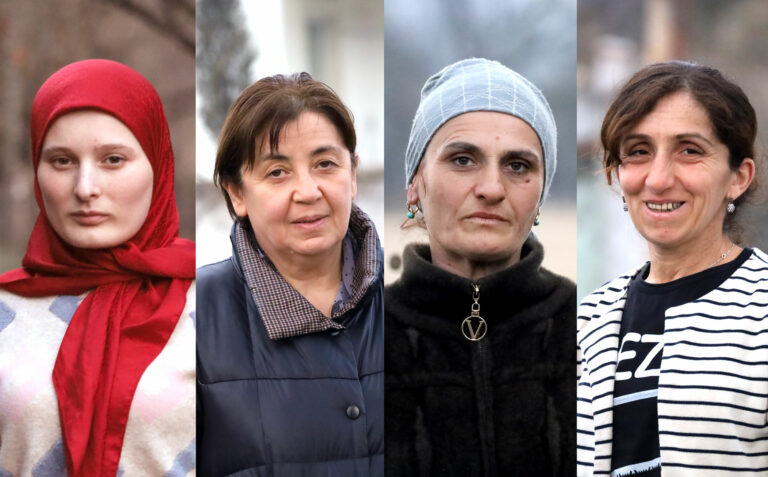
Taking health into their own hands: women’s empowerment in the remote villages of Georgia
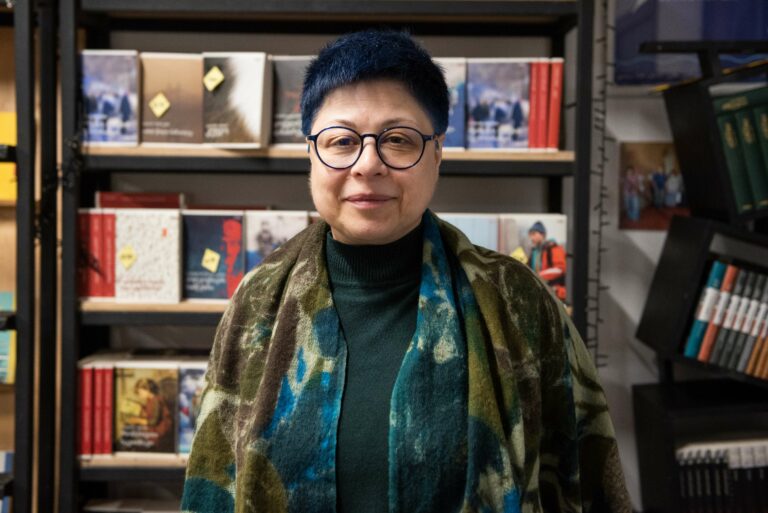
A woman publisher in a male-dominated industry – the path to a big dream

Be one step ahead of a hacker: check simple cybersecurity tips!
More campaign pages:
Interested in the latest news and opportunities?
This website is managed by the EU-funded Regional Communication Programme for the Eastern Neighbourhood ('EU NEIGHBOURS east’), which complements and supports the communication of the Delegations of the European Union in the Eastern partner countries, and works under the guidance of the European Commission’s Directorate-General for Neighbourhood Policy and Enlargement Negotiations, and the European External Action Service. EU NEIGHBOURS east is implemented by a GOPA PACE-led consortium. It is part of the larger Neighbourhood Communication Programme (2020-2024) for the EU's Eastern and Southern Neighbourhood, which also includes 'EU NEIGHBOURS south’ project that runs the EU Neighbours portal.

The information on this site is subject to a Disclaimer and Protection of personal data. © European Union,







